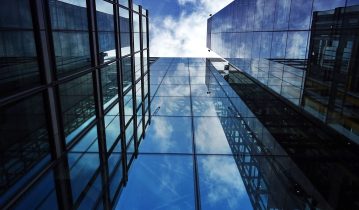Intro
The Art of Reflection
The data industry has a regular rhetoric that you shouldn’t look backwards, or run reports that look at what happened (descriptive analytics). This has led people to believe that this panacea exists where you are able to have your business strategy prescribed to you by data (prescriptive analytics).
One Big Message
We need to look back, reflect, learn and use that as an opportunity to move forward.
Reflective learning
It involves using reflection techniques to help convey, analyze, and deliver information so that we can generate feedback and help set goals looking forward and help drive the learning and understanding. It’s a more effective way because you’re reflecting on what happened previously, and you’re using that to help you understand the thing that you’re currently working on. That feedback as part of a continuous cycle of learning will help you ultimately try and achieve more positive results.
Reflective learning helps with professional growth in one’s personal attainment as it is. It helps identify one’s personal strengths and personal weaknesses to create goals. It also helps to come up with improvement strategies by taking what happened, understanding why it happened that will help move forward in learning and understanding. It can also help with innovation by unpicking what worked, what didn’t work and it will teach something that helps you to create a better, newer, faster or cheaper way of solving a problem.
Learning from your failures
Reflection in business, judging and assessing performance, is actually a really powerful tool. It helps you remember your achievement. It helps you understand the answer to these questions:
- Did we do the thing that we set out to do?
- Did we put a plan in place?
- Did we achieve that plan?
That’s an important way of growing as an organization. If you’re good at hitting your plans or if you’re good at planning in the first place and knowing if you hit achievements and achieve what you’re out to achieve, that will help you understand where you are now in your business.
If you didn’t hit that plan and achievements or didn’t make the progress you wanted to, that might be because you didn’t quite get there or you’re still a work in progress. But looking back helps you learn from your failures.
Reflection with purpose
It is even more powerful than simply reflecting. The skill to have is in taking action and making decisions about what to do next, based on what you’ve seen.
So the goal that we’re after in this reflection is positive change and improvements, not simply stopping at the reflection and looking back or patting ourselves on the back or moving on.
To celebrate the successes that you’ve had is also an important part. But if we just stop there, it’s not enough. And also, in looking back on historic data, that is the basis for future predictions. So any machine learning model that’s looking to create artificial intelligence is done.
To summarise
By looking back, understanding what’s happened, looking at history, looking at data of what’s happened and patterns, use those as a basis for predictive models and any other intelligence that comes off the back of that kind of machine learning work. Reflect away. Look back and reminisce but do it purposefully and use that to do what you do and how you do it going forward.
Want to know more about this topic? Listen to this episode of Hub & Spoken
Related.
See all
Cynozure research calls for stronger data leadership in US financial firms to unlock data benefits

A CLEAR™ Path: How to Foster a Robust Data Culture by Leveraging Concepts from Industrial and Organizational Psychology

Outsmarting the Bots on demand: A practical application of machine learning




